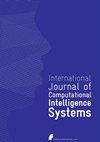Design and Implementation of Physical Education Teaching Management System Based on Multi-agent Model
IF 2.9
4区 计算机科学
International Journal of Computational Intelligence Systems
Pub Date : 2023-10-30
DOI:10.1007/s44196-023-00349-9
引用次数: 0
Abstract
Abstract The traditional physical education (PE) teaching management system is usually controlled and managed by a single center, which cannot meet the diversified and personalized teaching needs. Therefore, the research of PE teaching management system based on multi-agent mode has become an important direction. The purpose of this paper was to discuss how to improve the effect and quality of PE teaching and enhance students' learning enthusiasm and initiative through the design of multi-agent mode PE teaching management system. The PE teaching management system based on multi-agent mode provides more flexible and personalized teaching management services by utilizing the cooperation and interaction between agents, realizes the information exchange between teachers and students, provides real-time teaching feedback and evaluation, and promotes the sharing and collaboration of teaching resources. Therefore, the operating efficiency of the conventional physical education management system was the highest at 75% and the lowest at 67%, according to the experimental findings of this paper. The multi-agent model-based management system for physical education had a 95 percent maximum operating efficiency and an 88% minimum operational efficiency. The minimum difference between the two was 21%, and the maximum difference was 20%. It can be seen that the operation efficiency of the physical education management system based on the multi-agent model is more advantageous and more stable.基于多智能体模型的体育教学管理系统设计与实现
传统的体育教学管理系统通常由单一中心控制和管理,无法满足多样化和个性化的教学需求。因此,研究基于多主体模式的体育教学管理系统已成为一个重要的方向。本文旨在探讨如何通过设计多主体模式的体育教学管理系统,提高体育教学的效果和质量,增强学生学习的积极性和主动性。基于多主体模式的体育教学管理系统,利用主体之间的合作与互动,提供更加灵活、个性化的教学管理服务,实现师生之间的信息交流,提供实时的教学反馈与评价,促进教学资源的共享与协作。因此,根据本文的实验结果,传统体育管理系统的运行效率最高为75%,最低为67%。基于多智能体模型的体育管理系统最大运行效率为95%,最小运行效率为88%。两者之间的最小差异为21%,最大差异为20%。由此可见,基于多智能体模型的体育管理系统运行效率更有利、更稳定。
本文章由计算机程序翻译,如有差异,请以英文原文为准。
求助全文
约1分钟内获得全文
求助全文
来源期刊

International Journal of Computational Intelligence Systems
工程技术-计算机:跨学科应用
自引率
3.40%
发文量
94
期刊介绍:
The International Journal of Computational Intelligence Systems publishes original research on all aspects of applied computational intelligence, especially targeting papers demonstrating the use of techniques and methods originating from computational intelligence theory. The core theories of computational intelligence are fuzzy logic, neural networks, evolutionary computation and probabilistic reasoning. The journal publishes only articles related to the use of computational intelligence and broadly covers the following topics:
-Autonomous reasoning-
Bio-informatics-
Cloud computing-
Condition monitoring-
Data science-
Data mining-
Data visualization-
Decision support systems-
Fault diagnosis-
Intelligent information retrieval-
Human-machine interaction and interfaces-
Image processing-
Internet and networks-
Noise analysis-
Pattern recognition-
Prediction systems-
Power (nuclear) safety systems-
Process and system control-
Real-time systems-
Risk analysis and safety-related issues-
Robotics-
Signal and image processing-
IoT and smart environments-
Systems integration-
System control-
System modelling and optimization-
Telecommunications-
Time series prediction-
Warning systems-
Virtual reality-
Web intelligence-
Deep learning
 求助内容:
求助内容: 应助结果提醒方式:
应助结果提醒方式:


